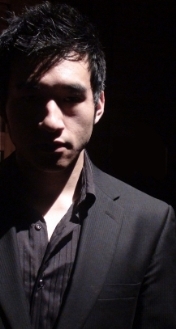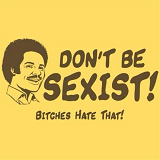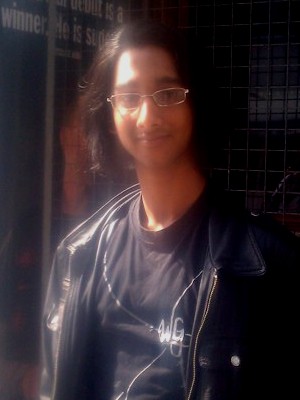
| . : News : . | . : Message of the Week : . |
You are currently viewing an archive of the Wilderness Guardians clan's IPB1 forums.
These forums were used by WG from 2008 to 2011, and now exist for historical and achival purposes only. For the clan's current forums, CLICK HERE. |
"You are a Wilderness Guardian. That northern wasteland; that land of blood, desolation and death is your dominion. Tonight we are going home." ~His Lordship |
|---|---|---|
| War Alert: OFF | Raid Alert: OFF | |
PM a WG Official |
||
Posted: April 26, 2010 03:55 pm  | |||||
            IRC Nickname: Wayne|Eregion2 Group: Emeritus Posts: 3087 Member No.: 156 Joined: January 25, 2008 Total Events Attended: 8    |
| ||||
Posted: April 26, 2010 04:18 pm  | |||||
                  IRC Nickname: His Lordship Group: Founder Posts: 6029 Member No.: 1 Joined: December 26, 2007 Total Events Attended: 129    | All you have to talk about is China killing Tibetans. Then you're set. _________ On another note, I regret to say I can't help. Really sorry, but Good luck. Check the topic of peoples' specialties and see if someone's pro in this area. --------------------  | ||||
Posted: April 26, 2010 04:19 pm  | |||||
            IRC Nickname: Wayne|Eregion2 Group: Emeritus Posts: 3087 Member No.: 156 Joined: January 25, 2008 Total Events Attended: 8    | No problem. Abstract: This paper explores the history and present ethical standing of the World Trade Organization, one of the largest and most influential international organizations in the world (CITATION). Taking over from the international General Agreement on Tariffs and Trade in 1995, the World Trade Organization is currently comprised of 153 individual member states, and has inevitably become a strong center of international power.Following their five core goals of Trade without Discrimination, Freer Trade, Predictability, Promoting Fair Competition, and Encouraging Development, the World Trade Organization has embraced the responsibility for maintaining a stable and essentially fair international trade environment (CITATION). However, since its conception 15 years ago, the World Trade Organization has drawn criticism from many sides, ranging from environmental concerns to the charge that they are placing unnecessary pressure on less powerful countries to conform to a set of standards which are much more beneficial to stronger, more developed countries who are already strongly entrenched in the sphere of international trade (CITATION). This paper will explore the history and basic professed tenants of the World Trade Organization, before delving into the issues, stakeholders, pros and cons, and possible alternatives related to present national and international affairs and interests, before concluding with a consensus arrived at by the individual researchers upon completion of the project. --------------------  | ||||
Posted: April 26, 2010 04:59 pm  | |||||
            IRC Nickname: Wayne|Eregion2 Group: Emeritus Posts: 3087 Member No.: 156 Joined: January 25, 2008 Total Events Attended: 8    | Introduction: In 1947, the General Agreement on Tariffs and Trade was formed in an attempt to give an air of solidarity to the international trade environment (CITATION). Based in Geneva, Switzerland, the General Agreement on Tariffs and Trade, or GATT, went through many rounds of negotiations, and soon became an authoritative body on the international trade of goods and services concerning its member states.Although the GATT met with considerable success, there were still many obstacles to overcome. For example, the article "The WTO in Theory and Practice," written by Frances Kim and published in the Yale Economic Review in April of 2010, discussed how smaller, less powerful countries were concerned that their rights would be overlooked in favor of the interests of larger, more powerful countries (CITATION). This and other concerns eventually lead to the Uruguay Round in 1980, a series of negotiations and discussions aimed at exploring the future of the GATT. These discussions eventually lead to the dissolution of the GATT, and the founding of the World Trade Organization in 1995 (CITATION). The World Trade Organization began with 75 member states, and has more than doubled in size in the past fifteen years (CITATION). As Kim explained in "The WTO in Theory and Practice," "[the World Trade Organization] is one of the most successful international institutions ever created" (p.11). The article also goes on to praise the World Trade Organization for working continuously to improve "multilateral trade" on an international scale (CITATION). While revitalized and renewed, the World Trade Organization adopted the general tenants of the GATT, summarized in five core principles the World Trade Organization has professed to follow in regards to their role in supplementing the international trade environment. The first principle is Trade without Discrimination, which involves two sub-principles, the Most-Favored-Nations (MFNs) principle and the principle of National Treatment. Essentially, these principles state that member states should not discriminate within international economic interests based on national political interests, while allowing some additional benefits for countries who decide to term themselves as a "developing" nation (CITATION). The second principle is Freer Trade. Gradually, through negotiations and the lowering of tariffs and other international trade barriers, the World Trade Organization is invested in creating an international environment of liberalized trade, where individual countries eventually negate many of their individual controls over their import and export activities (CITATION). The third principle is Predictability; through binding agreements and legal transparency, the World Trade Organization seeks to create a solid and reliable environment within which international trade can flourish (CITATION). The fourth principle is Promoting Fair Competition. This principle involves the perceived fair use of power by member states within the World Trade Organization and international trade in general, and urges them to act ethically and fairly within the framework of the World Trade Organization (CITATION). Lastly, the fifth principle is Encouraging Development and Economic Reform, which represents the apparent ideology of the World Trade Organization revolving around giving developing countries a better chance in competing internationally, and helping them to conform to international trade expectations (CITATION). The World Trade Organization promotes itself as a neutral arbitrator of international trade negotiations and disputes, and has made significant progress in this direction since 1995 (CITATION). They are also credited with being one of the most democratic international organizations, driven fundamentally by the votes of its member states (CITATION). However, in an environment where each member state has one single vote, it is not particularly challenging for a single member to obstruct a line of trade negotiation for years, or decades. This is amply reflected in the Doha Round, a series of negotiations which began in 2001 and still have yet to reach any sort recognizable conclusion (CITATION). Additionally, several countries who have joined the World Trade Organization over the years have been marked for using the organization expressly to further their own national economic interests while repeatedly failing to conform to the goals and reforms attested to by the World Trade Organization. A striking example would be China, which joined the World Trade Organization in 2001, but has since shown little to no willingness to open their borders to foreign competition which they feel would have a detrimental effect on their own national industries (CITATION). --------------------  | ||||
Posted: April 26, 2010 05:05 pm  | |||||
                   IRC Nickname: Group: Elite Guardian Posts: 7306 Member No.: 47 Joined: December 30, 2007 Total Events Attended: 343    | combo breaker -------------------- July 5, 2007 - June 27, 2011 | ||||
Posted: April 26, 2010 05:14 pm  | |||||
            IRC Nickname: Wayne|Eregion2 Group: Emeritus Posts: 3087 Member No.: 156 Joined: January 25, 2008 Total Events Attended: 8    | Issues: Fairness: The World trade Organization has presented itself not only as a neutral forum for international trade negotiations, but also as a promoter of free and fair trade between competing nations. This has lead to special rules being established to give developing nations more competitive power internationally.Responsibility: Besides establishing fairness in international trade relations, the World Trade Organization also actively pursues establishing a sustainable environment to give lasting support to international trade agendas. Further, they have adopted the responsibility of creating and maintaining a system of international trade arbitration. Sustainable Development: In a combination of fairness and responsibility, the World Trade Organization is also pursuing decisions which will promote sustainable development among developing nations. This agenda is two-fold, in both creating opportunities for developing countries to advance, and to make sure they are not taken advantage of by more powerful trading partners. Power: The World Trade Organization has created a center of international power directly involving 153 member states (see Appendix B: Map of WTO Members). While the World Trade Organization is credited with being one of the most democratic international organizations in existence, it is important that individual countries do not abuse their own power within the framework of the organization. National Sovereignty: While noted for being especially democratically minded, the World Trade Organization still exerts extraordinary power, especially over smaller, more susceptible developing nations. This has drawn criticism that the World trade Organization is using its position to promote an international trading environment which is most supportive of larger, more established nations, while being detrimental to the long-term interests of developing nations (CITATION). But larger countries have also been effected, such as the Chinese government (see Pros: Reciprocity). Liberalized Trade: The World Trade Organization has devoted itself to the liberalization of international trade, arguing for less government-controlled regulation and a freer international trading environment (CITATION). While arguing that a freer trade environment helps everyone, and also encourages democracy and freedom while creating incentives for countries to work together rather than against each other, others have argued that this system unfairly promotes an environment more advantageous to larger, established countries (CITATION). Smaller, developing countries concentrating on encouraging their own national industries have drawn criticism from the World Trade Organization in the past for taking steps detrimental to trade liberalization, which is an added argument for how the World Trade Organization can undermine national sovereignty (CITATION). Government Subsidies: As part of fairness and trade liberalization, the World Trade Organization carries out studies to make sure certain national industries do not have an unfair advantage over their international competitors (CITATION). A major part of this debate involves government subsidies; often, the World Trade Organization will support higher tariffs or other steps when faced with exports from industries who receive substantial government subsidies in order to level the playing field, as it were. This has been a significant sticking point in terms of the United States' involvement in the Doha Round of negotiations, in terms of the government subsidies annually given to the agricultural industry. --------------------  | ||||
Posted: April 26, 2010 05:37 pm  | |||||
            IRC Nickname: Wayne|Eregion2 Group: Emeritus Posts: 3087 Member No.: 156 Joined: January 25, 2008 Total Events Attended: 8    | Stakeholders: The primary stakeholders in the World Trade Organization are the 153 member states which make up the general council (see Appendix A: WTO Organization Chart). Several of these countries, however, such as China and the United States, can exert considerably more control than others. China became a member of the World Trade Organization in December of 2001, and was one of the last major international powers to join the World Trade Organization (CITATION). With a population numbering well over one billion, China is in a good position to make some agreements with other countries that could be seen as decidedly unilateral in nature. However, China represents a considerable portion of annual international imports and exports, and the United States argued strongly in favor of their admission into the World Trade Organization. It was also a significant step in terms of the trade ties relating the United States to China: "[China] gaining the full range of benefits [of WTO membership] is particularly important in light of the large and growing deficit the United States faces in its trade with [that country]" (Lardy, 2000). Since China's entry into the World Trade Organization, they have bent the rules to help their own country gain a significant international advantage (CITATION). Additionally, the Chinese government has been criticized for arbitrarily controlling the value of their currency, making it less valuable (CITATION). This helps China when it comes to exports, because it is technically cheaper to buy from China than from another country. This is an unfair and illegal advantage, but China has to date resisted all international pressures to conform to international expectations. And in light of their huge population and potential for market growth, other countries see more promise in simply coexisting with them (CITATION). The United States is also a significant stakeholder in the World Trade Organization, having been a member of the World Trade Organization since 1995, and previously a member of the GATT since its beginning in 1947 (CITATION). Subsequently, and given their position in international trade and politics, the United States has exerted considerable influence on how rules and regulations have been set up within the World Trade Organization (CITATION). The United States economy is vast and strong, and represents a significant share in annual international trade (CITATION). In terms of the World Trade Organization, member states can be dramatically affected by the rules and regulations arrived at by negotiations and discussions presided over by the organization's secretariat. The controls set in place in the agreements determines how each country's economy will do, and what limitations they will have placed on their imports and exports. Most of the rules are there to help countries grow and become stronger, more prosperous nations, but others are in place to stop countries from abusing the new power generated by their positions within the organization. In 1998, there were 132 members of the World Trade Organization, 98 of which were listed as developing nations (CITATION). These countries have less power in the World trade Organization because of the level of their imports and exports, lesser bargaining power in negotiations, and often their inability to keep a permanent presence at the World Trade Organization's headquarters in Geneva, Switzerland (CITATION). [continued...] --------------------  | ||||
Posted: April 26, 2010 08:45 pm  | |||||
           IRC Nickname: Bam Group: Emeritus Posts: 2762 Member No.: 131 Joined: January 20, 2008 Total Events Attended: 111    | i wish i had the time and the will reading it. --------------------   | ||||
Posted: April 27, 2010 12:41 am  | |||||
            IRC Nickname: Wayne|Eregion2 Group: Emeritus Posts: 3087 Member No.: 156 Joined: January 25, 2008 Total Events Attended: 8    | Don't bother, it's crap. When it's done though it should be decent. Got close to a 1-week extension, thank you God (and professor Luke). Stakeholders, Cont: Although every country has sovereign control over their decisions to import and export products, developing countries need the larger, more developed countries to function well. This means that they will side with whomever they are primarily trading with, and often do not have enough individual power to make a significant difference in major decisions. Meanwhile, the more developed countries can use trade-offs to negotiate trade, exerting an unfair advantage over less developed countries (CITATION).Since developing countries do not have enough human or technical resources, they cannot attend all the meetings that the WTO has each week... (CITATION). The World Trade Organization also effects other international organizations which are involved with trade and the import and export of goods and services. And Geneva, Switzerland is a significant stakeholder, since that is where the World Trade Organization is centered (CITATION). This concentration of international interests is very beneficial to Geneva and the Swiss economy in general. Simultaneously, the World Bank and International Monetary Fund (IMF) are also significant stakeholders in the World Trade Organization, as their international roles often overlap or complement one another (CITATION). The European Union (EU) is also affected by the World Trade Organization, as all of its members are also members of the World Trade Organization. Russia, as of the publication of this paper, is not a part of the World Trade Organization due to their extensive government control of their economy and industries, and that they are also a member of a trade union, which would violate the World Trade Organization's non-discrimination principles (CITATION). --------------------  | ||||
Posted: May 5, 2010 10:29 pm  | |||||
            IRC Nickname: Wayne|Eregion2 Group: Emeritus Posts: 3087 Member No.: 156 Joined: January 25, 2008 Total Events Attended: 8    | Just to conclude this, I spent 20 hours last weekend entirely rewriting the entire paper. We got a 95%. --------------------  | ||||
Posted: May 6, 2010 01:11 am  | |||||
               IRC Nickname: DG_Keanu Group: Council Posts: 4782 Member No.: 2033 Joined: August 25, 2009 Total Events Attended: 173    |
Did you address that or just write a generalisation on the whole thing? -------------------- [05:42] <+WG_Keanu> I think I got a semi just looking at the pic [05:42] <%kat> same | ||||
Posted: May 6, 2010 02:40 am  | |||||
            IRC Nickname: Wayne|Eregion2 Group: Emeritus Posts: 3087 Member No.: 156 Joined: January 25, 2008 Total Events Attended: 8    |
| ||||
 The World Trade Organization
The World Trade Organization